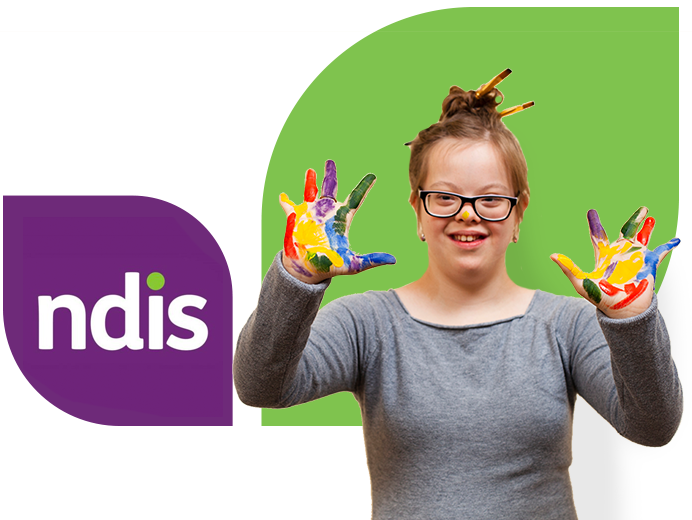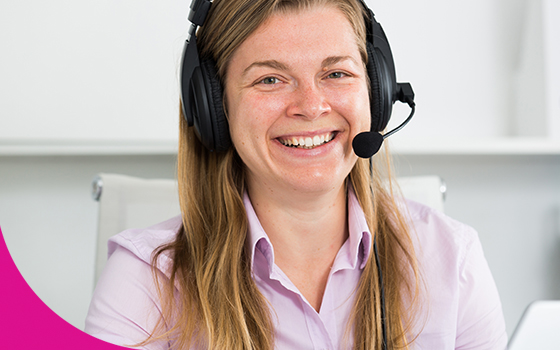What is the NDIS?
The National Disability Insurance Scheme (NDIS) was introduced in 2013, with the aim of helping people with permanent and significant disabilities access government funding for reasonable and necessary supports and services they need to live and enjoy their life. It is Australia’s first national scheme for people with disability.
Disability supports and services include assistance or products that support a person with disability to complete their daily tasks, participate in social and community activities, meet their needs and achieve their goals.
The NDIS also provides people with disability, regardless of their eligibility for funding, with information and linkages to supports and services within their communities. This includes networks to doctors, support groups, libraries and schools, and sporting clubs.
People with disabilities who meet the eligibility criteria for the NDIS are referred to as participants. Each NDIS participant has an individual NDIS plan that specifies their unique goals and allocated funding. Funds are provided directly to participants by the NDIS via the myplace portal and the participant has the choice and control of their funding and supports.
Prior to the NDIS, funds went to institutions and often people did not receive all that they needed. The NDIS is trying to change that by giving power back to the individual and allowing them the freedom of choice.
“The NDIS takes a lifetime approach, investing in people with disability early to improve their outcomes later in life”

Am I Eligible for NDIS?
In order to be eligible you must meet some criteria, and these are:
- Aged under 65 years old at the time of applying.
- Must live in Australia and be an Australian citizen, a permanent resident, or hold a Protected Special Category Visa.
- Have a permanent and significant disability that requires you to need help in your daily life. This can be in the form of, personal assistance, special equipment (assistive technology), or modifications to your home. This includes disabilities that are episodic, such as people who have a significant and lifelong psychosocial disability.
- To access the NDIS to receive early intervention supports, you must have a permanent disability, or be a child aged 0-6 years with a significant developmental delay requiring a certain level of intervention.
- To access Specialist Disability Accommodation (SDA) funding, you must have an ‘extreme functional impairment’ or ‘very high support needs’, and meet the SDA needs requirements.
If you are unsure if you qualify for the NDIS you can call them directly on 1800 800110 or visit their website at ndis.gov.au.

Are you looking to switch your provider?
If you feel that your current provider is not looking after everything as best they should and making the most of the funds provided by the NDIS to you, you can change providers at any time.
In general, you don’t need to give a reason to your current provider, although they may ask if they wish to improve their services. MyCare Keeper can help you complete the necessary documentation to make the switch and assist in making the transition process as smooth as possible.
New to the NDIS?
Not sure where to start? We can answer your questions and help you apply to access the NDIS at no fee.
Alternatively, the NDIS Access Request Form (ARF) and Supporting Evidence Form (SEF) are now available to download at https://www.ndis.gov.au/applying-access-ndis. Access Requests can also be made by telephone on 1800 800 110 or through your local LAC or NDIS office.
You will need to work with your GP, allied health, and specialist medical professionals to prepare and provide the information required to support your application.
Once completed, your ARF and SEF can be submitted by email to NAT@ndis.gov.au, by post to GPO Box 700, Canberra ACT 2601 or by dropping it into your nearest NDIS office.
You can contact one of our friendly and experienced team members on 1300 715 815 or info@mycarekeeper.com.au for assistance. We are always happy to have a chat and assist you with your NDIS ARF.
Frequently Asked Questions
The NDIS (National Disability Insurance Scheme) is designed with the aim of helping people with permanent and significant disabilities access government funding for reasonable and necessary supports and services they need to live and enjoy their life. It is Australia’s first national scheme for people with disability.
The NDIS (National Disability Insurance Scheme) is designed with the aim of helping people with permanent and significant disabilities access government funding for reasonable and necessary supports and services they need to live and enjoy their life. It is Australia’s first national scheme for people with disability.
‘Reasonable’ means something that is fair and ‘necessary’ refers to something that a person requires. Funding ‘reasonable’ and ‘necessary’ supports and services means that assistance is being provided to participants to help them reach their goals and meet their needs.
Carers are people that provide assistance to people that have a disability, mental illness, or other permanent injury.
People with disability who apply and meet the eligibility criteria for access to NDIS funding are referred to as participants.
Support if available to help meet a person’s reasonable and necessary requirements. However, it must:
- be related to the person’s disability
- have a positive effect on their life
The types of supports that the NDIS may fund for participants include:
- daily personal activities
- transport to enable participation in community, social, economic and daily life activities
- workplace assistance to allow a participant to successfully get or keep employment in the open or supported labour market
- therapeutic supports including behaviour support
- help with household tasks to allow the participant to maintain their home environment
- help to a participant by skilled personnel in aids or equipment assessment, set up and training
- home modification design and construction
- mobility equipment,
- specialist disability accommodation; and
- vehicle modifications.
The NDIS cannot fund a support that is:
- the responsibility of another government system or community service
- not related to a person’s disability
- relates to day-to-day living costs that are not related to a participant’s support needs, or
- is likely to cause harm to the participant or pose a risk to others.
In response to the coronavirus (COVID-19) pandemic, the NDIA has extended the usual 12 month scheduled NDIS plan review to up to 24 months.
If your circumstances have changed significantly, you can apply to have a full plan reviewed sooner.
Children under the age of 7 years who receive Early Childhood Early Intervention (ECEI) support are required to undergo a full plan review every 12 months.
Specialist Disability Accommodation (SDA) refers to specialised housing that is designed for participants with ‘extreme functional impairment’ or ‘very high support needs’. SDA homes are more accessible and enable better and safer support delivery.
Click here to learn more about the SDA eligibility and application process. (link to SDA page).
Supported Independent Living (SIL) is personal support with daily tasks to assist participants to live as independent as possible, while building skills and capacity. SIL supports may include assistance with personal care tasks, meal preparation and cooking, behaviour support and social skill development, medication administration, support for medical appointments, community access that is not regular or routine, and support to get to and from community access activities.
NDIS participants are responsible to meet their day-to-day living costs, including rent, groceries, utilities, vehicle costs, telephone or internet costs. It is the responsibility of the participant to also cover general household items such as a bed, fridge or cooking utensils.
In limited circumstances, the NDIS may make a contribution to these costs. This is in circumstances where the participant only incurs the cost due to their disability or their costs are considerably higher due+ to their disability. For instance, a participant with mobility restrictions requiring a modified bed or electric recliner bed to avoid bed sores.
Specialist Disability Accommodation (SDA) refers to specialised housing that is designed for participants with ‘extreme functional impairment’ or ‘very high support needs’. SDA homes are more accessible and enable better and safer support delivery.
Click here to learn more about the SDA eligibility and application process.
Supported Independent Living (SIL) is personal support with daily tasks to assist participants to live as independent as possible, while building skills and capacity. SIL supports may include assistance with personal care tasks, meal preparation and cooking, behaviour support and social skill development, medication administration, support for medical appointments, community access that is not regular or routine, and support to get to and from community access activities.
You can visit the NDIS website at: https://www.ndis.gov.au/
Need Help with your NDIS Application?
One of our support workers can help you complete and submit your NDIS Application.

